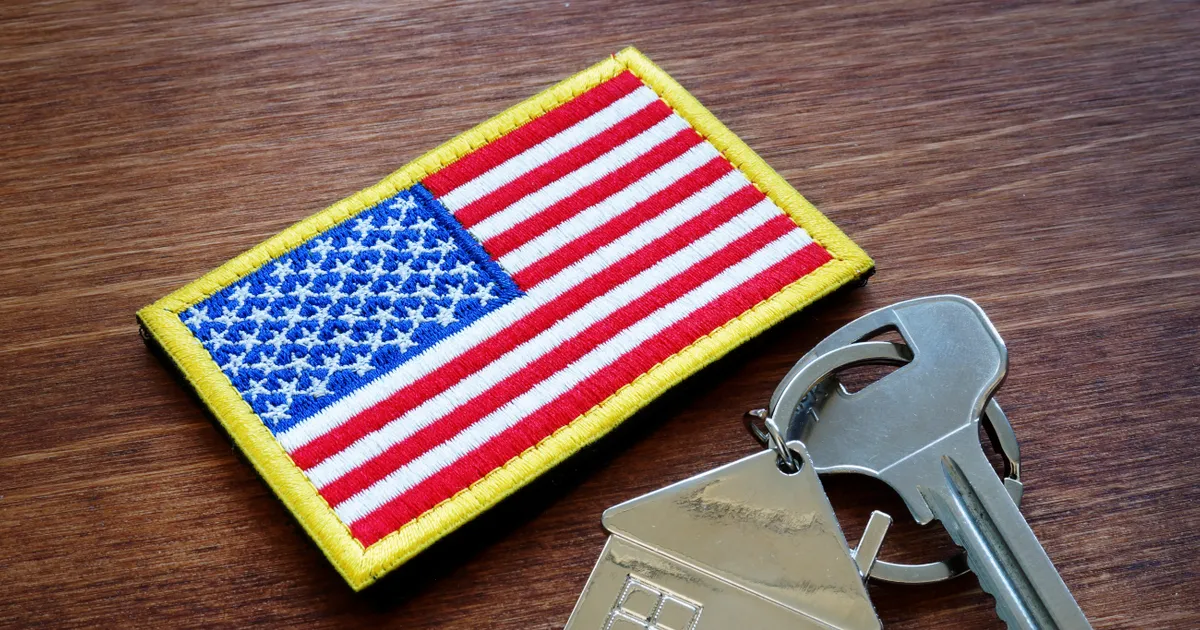Veteran loans are a valuable benefit that can help veterans and their families achieve their financial goals. These loans are designed to provide affordable financing options for military members and their families. That way, they can purchase a home, thrive in business, and consolidate debt.
There are several loan types available, each with its own eligibility requirements, benefits, and terms. Fortunately, if you start a search online today, you can learn everything you need to know about veteran loans.
 Shutterstock: Vitalii Vodolazskyi
Shutterstock: Vitalii VodolazskyiVA Home Loans
VA Home Loans are provided by the Department of Veterans Affairs (VA) and help veterans purchase, build, or refinance their homes. 1 These loans are typically easier to qualify for and offer lower interest rates than conventional loans.
VA loans don’t require a down payment, or private mortgage insurance (PMI). Plus, VA loans often have more flexible requirements, which can make them a better option for veterans with lower credit scores or limited funds. Collectively, these perks can save veterans thousands of dollars over the life of the loan.
SBA Loans
The Small Business Administration (SBA) provides loans to help veterans start or expand their business. SBA loans usually have lower interest rates and longer repayment terms than conventional business loans. Plus, they can provide veterans with larger amounts of capital than other lending companies.
However, the SBA not only offers financial assistance but also access to education and training. With these resources, veterans can gain greater insights on all the important aspects of running a business, from the loan application process to business planning.
Education Loans
Speaking of education and training, the VA provides several education loan programs for veterans. For example, the Post-9/11 GI Bill provides financial assistance to veterans who want to pursue a degree, vocational training, or other educational programs. 2 This program covers up to 100% of tuition and fees, and provides a housing allowance for eligible veterans.
Meanwhile, the Montgomery GI Bill provides education benefits to veterans who served at least two years on active duty. 3 It also offers a monthly stipend to help cover the costs of tuition and other educational expenses.
In addition to the Post-9/11 GI Bill and the Montgomery GI Bill, veterans may be eligible for federal student loans or private student loans. These loans can also help cover the costs of tuition, fees, and other expenses related to higher education.
Personal Loans
Some lenders offer personal loans specifically for veterans, which can be used for a variety of purposes such as debt consolidation, home repairs, or unexpected expenses. Unlike VA loans and SBA loans, personal loans are offered by everyday banks and credit unions.
Personal loans for veterans may offer some benefits, such as lower interest rates, flexible repayment terms, and simplified application processes. However, it’s important to note that the terms and interest rates can vary widely depending on the lender. So, veterans should carefully compare their options before making a decision.
Disability Loans
Disability loans are a type of loan available to veterans who have a service-connected disability. These loans can provide financial assistance to help cover the costs of medical treatment, home modifications, or other expenses related to their disability.
The VA provides several disability loan programs for veterans, including the Specially Adapted Housing (SAH) Grant and the Special Home Adaptation (SHA) Grant. 45 These grants can provide funding to help veterans make modifications to their homes to accommodate their disabilities, such as wheelchair ramps, widened doorways, and accessible bathrooms.
Know Your Eligibility
Before you apply to any of these veteran loans, you should understand the eligibility requirements. Factors such as length of service, discharge status, and credit score can all play a role in whether you’re eligible for certain loans.
Meeting these requirements can help ensure that you’re approved for a loan and receive the most favorable terms and interest rates.
Gather Your Documentation
You’ll also want to ensure that your documentation is in order before you apply for any of these loans. Veterans should be prepared to provide a series of documents – such as proof of income, tax returns, and bank statements – to support their loan application. Gathering these materials ahead of time can help streamline the application process and improve your chances of approval.
It can also be helpful to work with a financial advisor who specializes in veteran loans. These VA-approved lenders can provide guidance on the best loan options and help you choose the most favorable terms. 6
Build a Brighter Future
Veteran loans can provide valuable financial assistance to veterans and their families. Just make sure you carefully consider their eligibility requirements, plus the costs and benefits of each loan program.
By educating yourself on the different options and working with a knowledgeable lender, you can select the best loan for your needs. As a result, you can improve your financial well-being and build a brighter future!


